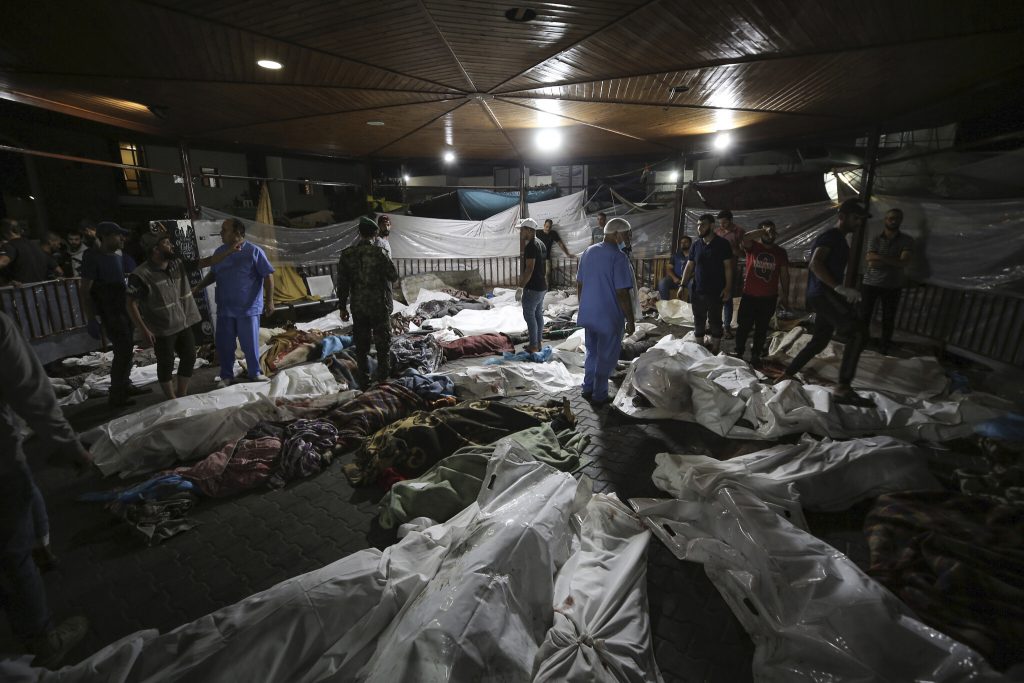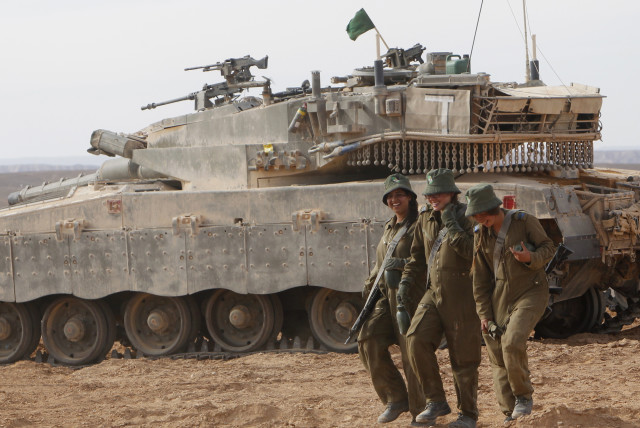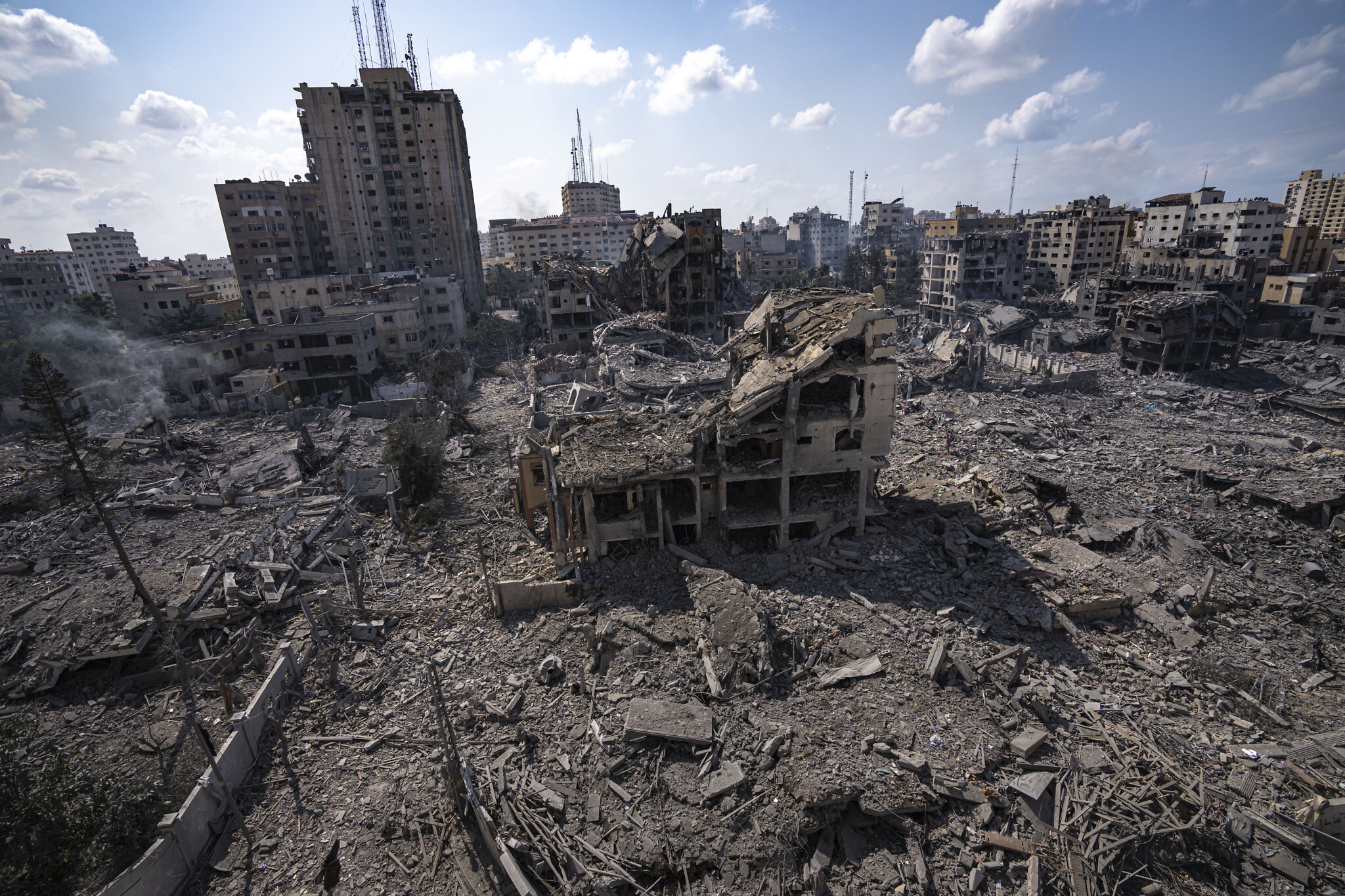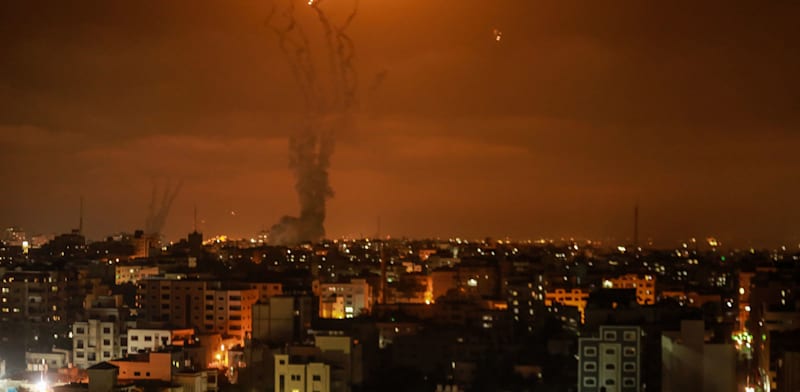
As anyone who has gone through it knows, war is the domain of confusion. Some people don’t see the enemy when and where he is there (this is what happened to us in Israel). Others “see” him when and where he is not. Everyone’s nerves are on edge, causing them to behave somewhat strangely and often making measured, coherent communication all but impossible. Rumors, censorship, disinformation and plain deception abound. Obstructed by censorship, clearing up the confusion so as to get a proper picture of what is happening can take weeks, months, years, or even decades. Indeed the more evidence emerges, the greater often the difficulty of shifting through it all and making sense of it all.
Yet man is the explaining animal. His huge forebrain means that he cannot exist without some kind of scaffolding to explain what has happened, why it happened, and what is likely to happen next. Absent a real explanation, he will first invent an unreal one and then, by repeating it, convince himself that it is true. Still, at the risk that everything I say will quickly be disproved, I shall try to pose some questions I have been asked and my answers to them.
Hamas took Israeli military intelligence, supposedly the world’s best, totally by surprise. How could this have happened?
It is as Nietzsche says: A great victory makes the winner stupid and the loser, malicious.
Can you explain?
Yes. It seems to have been a question of mirror-imaging. The confrontation with Hamas has now lasted for about twenty years. The IDF being greatly superior to Hamas, every clash ended in some sort of victory for Israel (or so at least the government and general staff, mindful of public relations, said). As “victories” piled up on top of each other, Israel’s confidence that it could handle this kind of attack grew. Just days before the sky came down on 7 October military intelligence was telling “the political echelon” (as we say here) that Hamas was being “deterred” and wanted nothing other than quiet. Punctuated, perhaps, by a few pinpricks to show it still existed and had something to say.
Today is Wednesday, the 17th of October and the twelfth day of the war. What is the situation now?
As far as I can see, the worst for Israel is over. The country has been put on a war footing, complete with the evacuation of many settlements bordering on the Gaza Strip. The reserves, 300,000 of them, have been called up and are deploying for action. Above all, the element of surprise is gone.
Obviously the first task is to make sure that no more terrorists remain at large inside Israel, a slow and, in terms of the necessary manpower needed to search every stone, expensive process. In the meantime, no doubt Israel’s airpower will continue bombing the hell out of Hamas targets in the Gaza Strip. In fact I can hear the jets flying in the skies above.
How did the destruction of al-Ahli hospital in Gaza affect the course of the war?
We—meaning, man (and woman)—have a strong tendency to always pounce on the latest events as the most important ones of all. After the attack on the hospital took place Hamas was quick to blame Israel, making the latter’s enemies leap for joy and causing Israelis to fear for the international support their country so urgently needs. Once it turned out that it was a rocket fired by the Islamic Jihad which did the damage and killed people things returned more or less to “normal.” Meaning, both sides stick to their strategy. Hamas in sending rockets into Israel in the hope of killing and injuring as many people as possible. And the Israeli military, in trying to “get” as many terrorists as possible so as make them stop doing so.
President Biden visited Israel and stayed for about five hours. What has he achieved?
The original objective of the visit was to a. Demonstrate American support for Israel; b. Help enlist humanitarian assistance the residents of Gaza; c. Bring together Palestinian, Jordanian, and Egyptian leaders in the hope of finding some kind of solution to the crisis. The first and second of these objective may have been achieved, at least to some extent. As to the third, no progress at all.
Will there be a full-scale Israeli invasion of the Gaza Strip?
I hope not. The Strip is one of the most heavily populated and urbanized pieces of land in the world. If that were not enough, the population is among the youngest—fully half of it is under nineteen years old. In countless cases, a combination of unemployment and chronic shortages mean that these people have nothing to lose, increasing their hatred for Israel and turning them into easy targets for Hamas recruiters.
As the World War II sieges of Leningrad and Stalingrad e.g showed, urban terrain, provided it is properly defended, can present an attacker with formidable problems. The deeper into it he wades, the greater his problems. Such as getting in supplies and reinforcements, ambushes, evacuating the wounded, etc.
How about Hezbollah in Lebanon? Will it join the fray, or will it stay out?
Very difficult to say. Hezbollah is a secretive organization and notoriously hard to penetrate. So far its leaders have been almost rabid in their declarations of support for Hamas; over the last few daysת their attacks on Israel have been increasing. They seem to be testing the waters—a dangerous game that may escalate שא any moment.
Syria and Iran?
Following twelve years of more or less intensive civil war, Syria hardly has any armed forces worth mentioning. Those it does have are busy fighting their domestic enemies. The Iranians provided political and logistic support and may have helped Hamas in planning the attack. Currently they are making all kinds threatening noises. However, and perhaps because they worry about a possible American threat and/or nuclear escalation, they seem to have done little to turn them into reality.
The rest of the Arab world?
The war presents the Arab governments with a dilemma. On one hand, ere hostilities started more and more of them were either signing peace with Israel or inching towards doing so. On the other hand, many have been feeling the pressure of their peoples which are less inclined to peace than their governments are. Should hostilities in and around Gaza continue, one may certainly expect negative political repercussions including, in cases where this is relevant, the breaking off of diplomatic relations. But war? Only in case Israel aces imminent collapse.
The international “system”?
Many countries are involved. Including, besides Lebanon, Syria and Iran, Jordan, Saudi Arabia, the United States, Russia, China, and the EU. The United States has promised to stand by Israel. However, the record—Vietnam, Iraq, Afghanistan (twice)—makes this promise look somewhat dubious. Russia/China are in league with Iran, but fortunately there are limits to what they can do. And the EU? Being Dutch, I shall use a Dutch expression to describe them: klootzakken (scrotums). Hopeless cowards who can only talk.
Do you think this may be the beginning of a third world war?
I consider that a remote possibility. But yes, it could be.
Returning to Israel and Hamas, who is going to win?
Victory means breaking the enemy’s will so that he ceases to resist. At the moment I cannot see this happening on either side; either they are too eager trying to exploit success (Hamas) or too busy licking their wounds and restoring the balance (Israel). Such being the case, Voltaire’s saying about the imaginary battle between Avars and Bulgars will apply. Both will sing mass, each in his own camp.
What can this struggle teach us about the future of war?
In my best-known book, The Transformation of War (1991) I argued that the future of war was guerrilla and terrorism. This prediction seems to be coming true, isn’t it?
In a rapidly changing world, each time s war breaks out the media are flooded with accounts of the technological marvels it has spawned. That is understandable; taking a longer point of view, though, one could argue that the most important lesson is that war still remains war. Includes its nature as a violent encounter between two (or more) belligerents, each of whom is at least partly free to do as he pleases; the enormous challenges, physical and mental, it poses to those who direct it and fight it; its roots in interest on one hand and sheer hatred on the other; its tendency to call out the most brutal qualities of man and make them spread; its tendency to escalate and, doing so, escape not just political control but any kind of rational calculation; the role played by stealth, deception and surprise; its dependence on the social makeup of the societies that wage it; and many other things which, together, do as much as in shaping it as any number of computers, missiles and drones.










